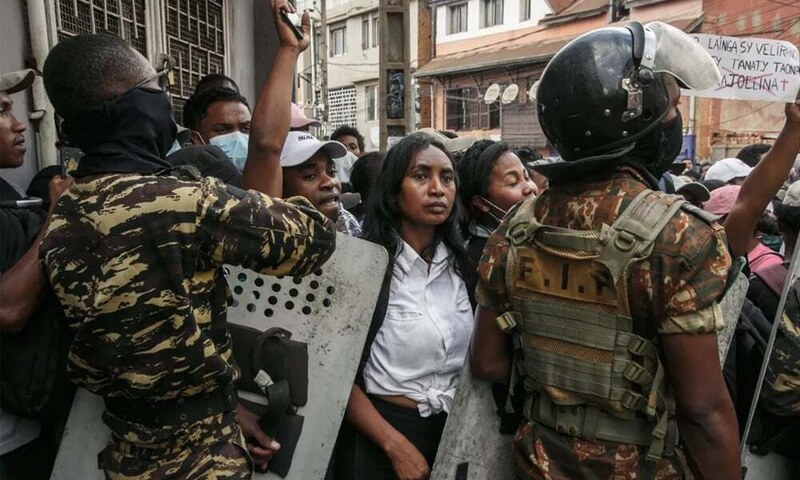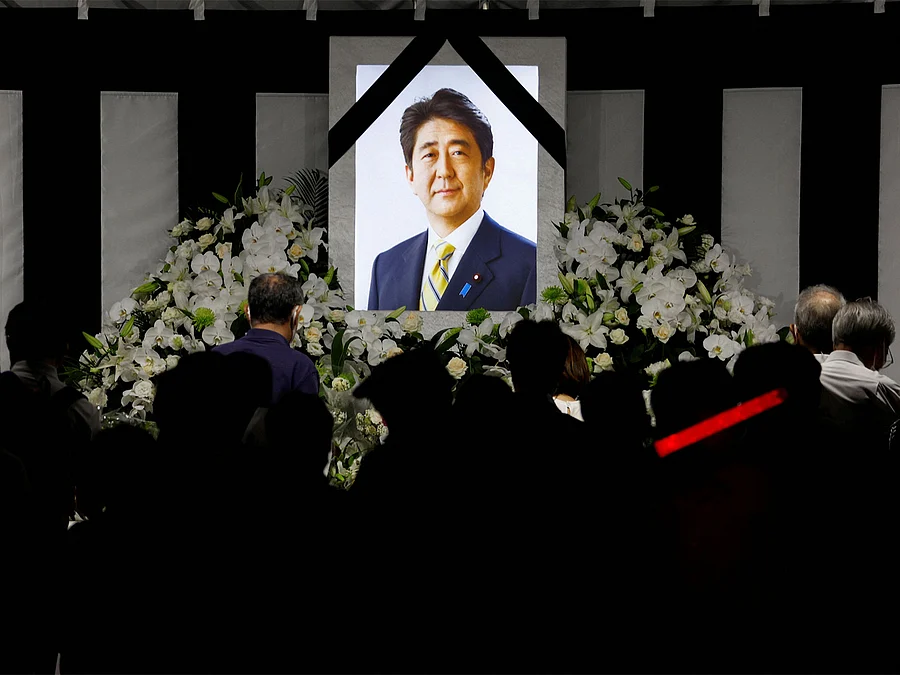Copyright brecorder

The world today stands on the edge of history. Its restless youth—scarred by corruption, nepotism, and elite capture—are no longer silent spectators. They are reclaiming the future that has been stolen from them. Generation Z—the students, the unemployed, the underpaid, the silenced—has become the spirit and vanguard of this awakening. The first tremors of this global youth uprising were felt in Sri Lanka in 2022, when masses led by students and young citizens stormed the streets. Anger over corruption, nepotism, authoritarianism, soaring inflation, unbearable cost of living, and crippling power cuts reached a breaking point. President Gotabaya Rajapaksa was forced to resign and flee abroad, chased away by the very people he had ignored. It was a stunning display of the power of the people—students and frustrated youth at its core—demanding nothing less than change. That moment in Colombo echoed around the world: a new generation had found its voice. Two years later, in Bangladesh, the fire reignited. Once again, students—this time from Dhaka University—rose in defiance of Sheikh Hasina Wajid’s entrenched and repressive rule. They denounced her corruption and tore apart the suffocating web of dynastic politics and the stagnant status quo. The uprising forced her to flee to India. In the aftermath, youth-led movements safeguarded democracy from the ambitions of generals and oligarchs, turning instead to Nobel laureate Muhammad Yunus to guide the nation towards free elections and a renewed democratic spirit. It was an inspiring assertion of civic will over tyranny. The epicenter then shifted to Nepal. What began as an attempt by the government to ban social media—after a viral video exposed the extravagant lifestyles of “Nepo kids,” the privileged offspring of the ruling elite—ignited a full-scale rebellion. For Nepal’s youth, social media was not merely a pastime; it was identity, expression, opportunity, and a platform of dissent. To silence it was to silence their very future. What followed was extraordinary. University students and unemployed youth poured into the streets in fury. They chased down ministers, stripping them of both their arrogance and authority. They stormed ministerial houses and dragged officials into public squares to face the wrath of those they had long ignored. The presidential palace, the Supreme Court, ministries, and ruling party offices were besieged. Parliament itself was torched, and in a symbolic act, young protesters hurled furniture out of its windows, chanting: “This is the house that did nothing for us!” The passions ran high because the grievances were real. For decades, corruption, mismanagement, and nepotism had crippled the country. Nepal had witnessed fourteen governments since 2008, yet none delivered meaningful reforms. Unemployment soared to over 20%, poverty deepened, and public despair grew unbearable. What finally broke the dam was not just the poverty or joblessness—it was the attempt to chain a generation’s voice and muzzle its digital freedom. Generation Z, born in the age of connectivity, refused to be locked out of the world they called their own. This tide of defiance has not stopped there. It has engulfed the Philippines, Indonesia, Kenya, Morocco, and the Indian Ocean island of Madagascar—one of the world’s poorest nations, where 75% of the 30 million citizens live below the poverty line. There, too, Gen Z led an uprising against power cuts, unemployment, and corruption. The protests, which have claimed at least 22 lives and injured more than 100, forced President Andry Rajoelina to flee as the army seized power. Once again, the message was unmistakable: the world’s youth are too awake to be silenced, too connected to be deceived, and too determined to surrender their future. And now Gen Z is reverberating in Lima, where a wave of crime and corruption has forced youth onto the streets. They want rights and stability in a country that has seen seven presidents in less than a decade. The power of agitating youth forced the ouster of President Dina Boluarte last week. Unsatisfied with the replacement of the new president, the rebellious youth vociferously demand the resignation of Jose Jerry. The power of youth will ultimately prevail—with Gen Z as a force of change and awakening assert. From Colombo to Dhaka, from Kathmandu to Antananarivo, to Lima and across the sprawling urban and rural landscapes of Asia and Africa, the message is the same. These uprisings were not foreign-funded spectacles or orchestrated conspiracies—they were indigenous, raw, and deeply human revolutions led by frustrated youth. Their common goals were unmistakable: to dismantle elite capture, to defy curbs on free expression, to demand justice, to create equal opportunities, and to claim a future worthy of their sacrifices. And now, Pakistan stands on the same precipice. Poverty, unemployment, and disease stalk our streets. Over 107.95 million Pakistanis live below the poverty line. Former Finance Minister and a regular columnist for this newspaper Dr. Hafiz A. Pasha estimates unemployment at 22%, a staggering figure that should raise alarm bells in every corridor of power. Corruption and elite privileges continue to flourish, while the majority struggle for mere survival. Our parliament unites only to safeguard its perks and privileges, not to uplift the masses. Our national debt has mortgaged our economic autonomy, while our infrastructure collapses each monsoon, turning rainfall into a recurring national disaster—claiming lives, destroying homes, and exposing the state’s absence. The writing on the wall is clear. When people unite—when the youth rise for their usurped rights—no power on earth can stop them. The lessons from Sri Lanka, Bangladesh, Nepal, Madagascar, and Peru echo loudly: repression and arrogance only delay the inevitable. The winds of change—carried by an aware, connected, and indignant Generation Z—are sweeping across continents. This wave cannot be contained; it demands to be heard. Before Pakistan too reaches a point of no return, there is still time—time to repair, to reflect, and to heal. Justice must be restored. Poverty and unemployment must be alleviated. Education and healthcare must be spread to the farthest corners. Elite capture must come to an end. Only by empowering the people and dismantling the system of privileges can we avert the storms of history and turn unrest into renewal. This is the call of Generation Z. It is not a cry of destruction but a plea for dignity, opportunity, and fairness. It is the hope not only of South Asia but of the entire world. This is our collective future—one that must not, and cannot, be denied. The waves of change are moving fast. The will of the people must be respected, and real power must return to where it rightfully belongs. And for all authoritarian rulers, autocrats, and dictators who cling to power—those who occupy national resources, crush dissent, and silence participation through coercion and fear—the message is unmistakable: embrace change before change embraces you. Return the resources of the people to the people. Build schools, hospitals, and industries instead of palaces. Restore democracy, empower participation, and end the oligarchies that suffocate hope. The world’s youth have awoken—and they will no longer wait. For those in power, there remains one choice: either stand with history—or be swept away by it. Gen Z has proved to be the loyal friend of change, reform, and reawakening for rights. It was imperative that echoes of change for rights, dissent, openness, and democracy be heard. Copyright Business Recorder, 2025



